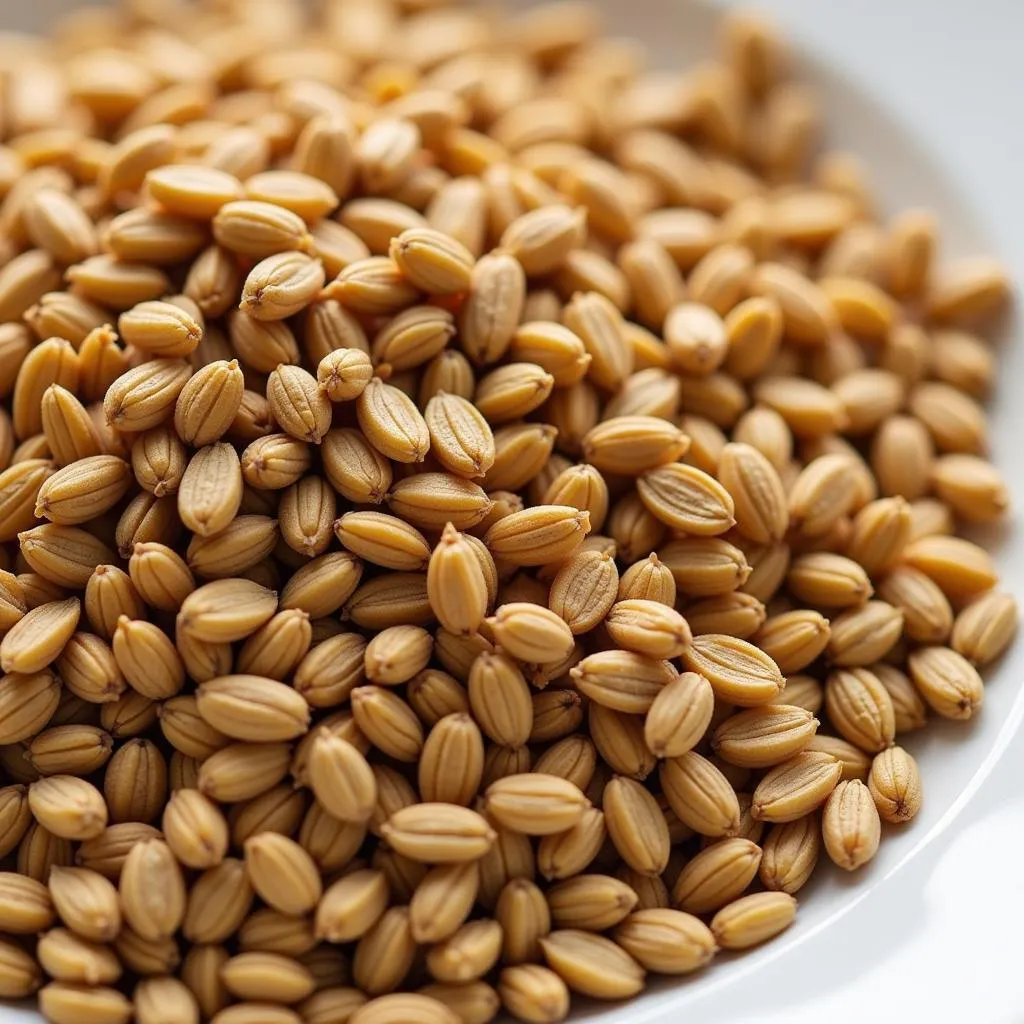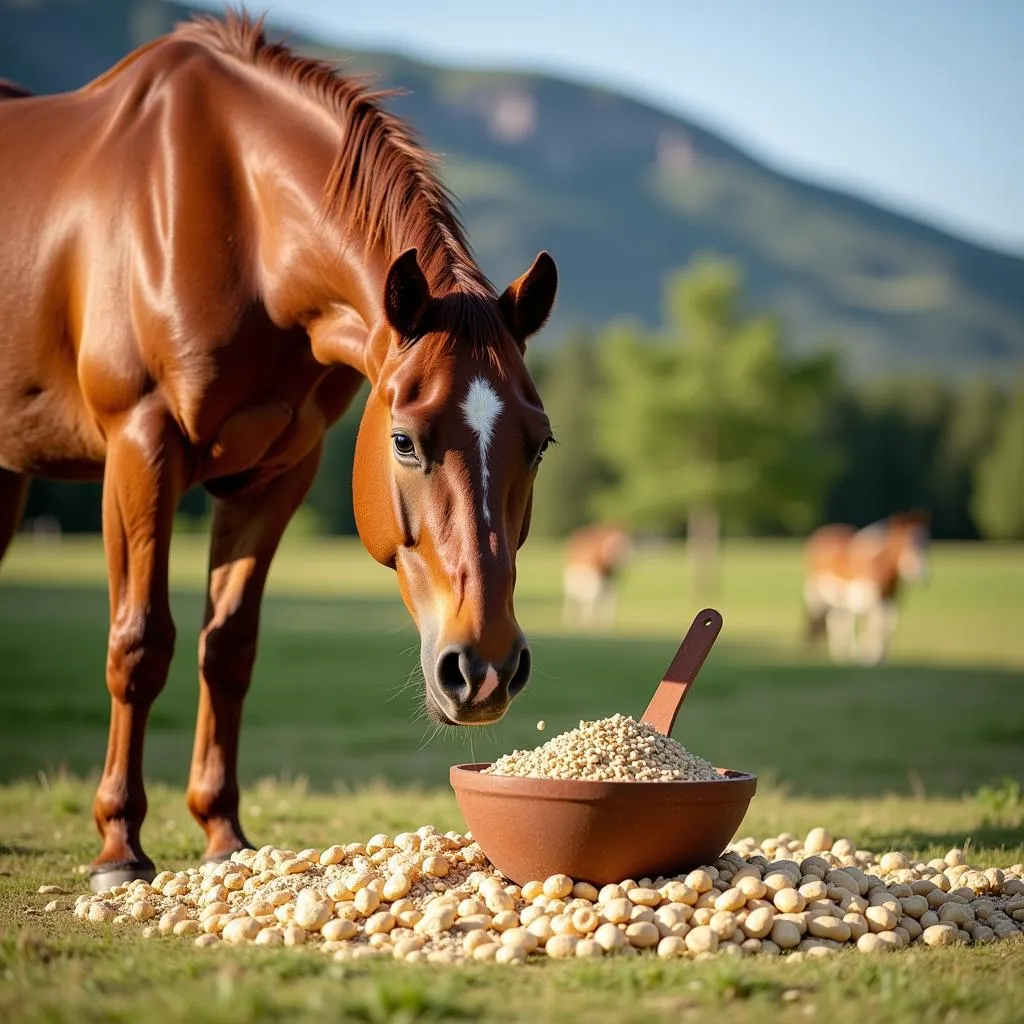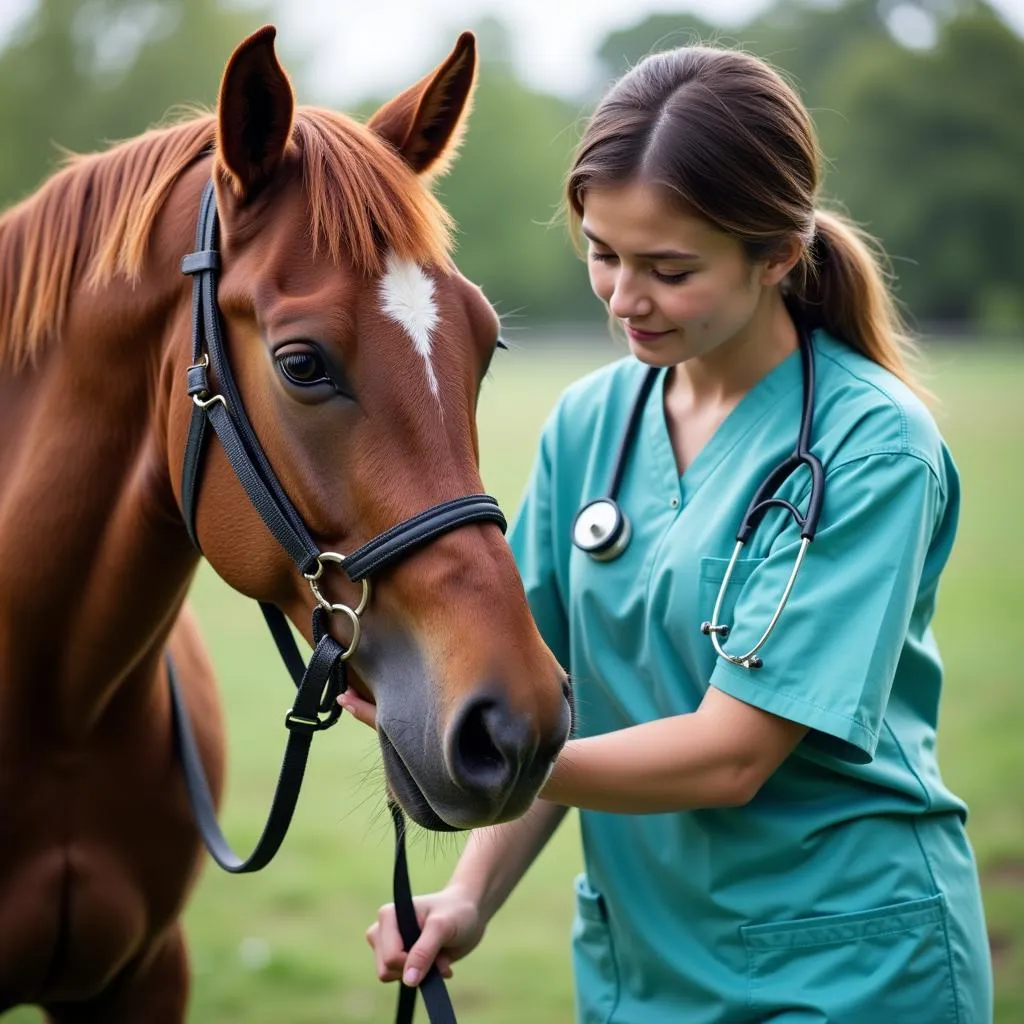Horse Cumin. You might have heard this term thrown around in equestrian circles, perhaps in hushed tones or with a knowing nod. But what is horse cumin, really? Is it a beneficial supplement or a dangerous myth? As passionate horse owners and experts at Justus Horses USA, we’re here to debunk the myths and provide you with the facts about horse cumin.
 Close-up of horse cumin seeds
Close-up of horse cumin seeds
Understanding the Controversy Surrounding Horse Cumin
Despite its name, “horse cumin” isn’t a type of cumin at all. It’s a colloquial term often used interchangeably with “black cumin” or “Nigella sativa,” a flowering plant with small, black seeds. While black cumin has been used in traditional medicine for centuries, its use in horses is shrouded in misinformation.
Separating Fact from Fiction: The Truth About Black Cumin for Horses
One of the biggest misconceptions is that horse cumin boosts the immune system and acts as a natural dewormer. While some studies suggest potential benefits of black cumin in other species, there’s no scientific evidence to support these claims in horses.
Potential Risks of Feeding Black Cumin to Horses
Furthermore, feeding your horse unverified substances can be risky. Black cumin contains compounds that may interact with certain medications or exacerbate existing health conditions.
“Remember,” advises Dr. Emily Carter, DVM, “always consult with your veterinarian before introducing any new supplements to your horse’s diet. What works for one horse might not be suitable for another, and incorrect dosages can have adverse effects.”
Prioritizing Your Horse’s Wellbeing: Safe Alternatives to Consider
Instead of relying on anecdotal evidence, focus on providing your horse with a balanced diet, regular veterinary care, and a stress-free environment. These are the cornerstones of a healthy horse.
 A horse enjoying a balanced meal of hay and grains.
A horse enjoying a balanced meal of hay and grains.
Natural Immune Support and Deworming Practices
For natural immune support, consider adding garlic or turmeric to your horse’s feed, but always in moderation and after consulting your vet. As for deworming, stick to a regular deworming schedule recommended by your veterinarian and based on fecal egg count analysis.
When in Doubt, Consult Your Veterinarian
Ultimately, your horse’s health is paramount. While the internet is awash with information about various remedies, it’s crucial to rely on evidence-based practices.
 A veterinarian performing a check-up on a horse.
A veterinarian performing a check-up on a horse.
When it comes to “horse cumin” or any other supplement, err on the side of caution. Consult your veterinarian for personalized advice tailored to your horse’s specific needs. Remember, a healthy horse is a happy horse!
FAQ
Is horse cumin toxic to horses?
While not inherently toxic, there’s no scientific evidence to support its safety or effectiveness. Always consult your vet before feeding it to your horse.
What are the signs of cumin poisoning in horses?
There’s no documented evidence of cumin poisoning in horses. However, if you notice any unusual symptoms after feeding your horse black cumin, contact your vet immediately.
Can I use black cumin oil on my horse’s coat?
Again, there’s no scientific data on the topical use of black cumin oil on horses. It’s best to stick to horse-specific grooming products.
Need more information? Check out our other articles on horse health and nutrition.
Have any further questions about your horse’s wellbeing? Don’t hesitate to contact our team at Justus Horses USA! Call us at 0772127271, email us at [email protected], or visit us at QGM2+WX2, Vị Trung, Vị Thuỷ, Hậu Giang, Việt Nam. Our dedicated team is available 24/7 to assist you.